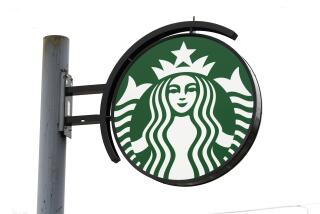Pepsi Is No Longer ‘Right One’ in Israel
- Share via
JERUSALEM — Pepsi is no longer “the right one, baby”--at least not in Israel.
Complaining that Pepsi was promoting a culture that would corrupt the nation’s youth through rock music concerts and advertisements featuring scantily clad women, rabbinical authorities Thursday revoked a certificate declaring that the soft drink conforms to Jewish dietary laws and is kosher.
The move will subject Pepsi products to a consumer boycott by the estimated 35% of Israel’s Jewish population that observes the dietary laws. It will probably also remove Pepsi from hundreds of restaurants and hotels that follow kashrut requirements and are subject to rabbinical inspection.
Pepsi’s “policies and immodest advertisements . . . were alien and totally contrary to our sensitivities and needs,” said the rabbinical court of the Eda Haredit community, one of the strictest here in observance of Jewish law.
The court objected to what it considered immodest dress by the women in Pepsi ads, showing much more of their bodies than their faces and hands, and to the recent Saturday night concert by the rock group Guns ‘n’ Roses that, it said, violated observance of the Jewish Sabbath.
Pepsi-Cola International’s planned sponsorship of a concert in September, also on a Saturday evening, by pop star Michael Jackson aroused even more worries; Jackson is regarded by many of the ultra-religious as a seducer of youth.
At the center of the dispute is Pepsi’s “New Generation” marketing theme, which Israel’s strictly observant haredi Orthodox community finds totally alien in philosophy. And in the background is the sharp struggle over social values that continues between the country’s secular majority and the religious minority.
“They feel that the whole attitude behind our theme, ‘The Choice of a New Generation,’ is opposed to their principles,” Reuven Avital, general manager of Pepsi Israel, a franchise of Pepsi-Cola International, said after a meeting Thursday with members of the rabbinical court.
“They came and said of our marketing campaign, ‘Gentlemen, this is unacceptable,’ and we said, ‘We can’t do without it.’ The young generation wants concerts, wants this music, and it is our target market. This was a macro issue, a philosophical issue, a conceptual issue, and there was no agreement.”
As the court revoked its much-sought kashrut certificate, the chief rabbi of the Tel Aviv suburb of Holon, where Pepsi is bottled, supported the decision by withdrawing his inspectors from the Pepsi plant.
In doing so, Rabbi Natan Neta Landman said in a statement: “Upon hearing of the desecration of the name (of God) and of eternal holy values--the Sabbath and morality--perpetrated in a disgraceful, shameful manner by the corrupt performance that Pepsico sponsored, and after all my requests were rejected that the wrongs be set right, I cannot, in keeping with the halacha (religious law) and the obligation to protest, see that which is holy destroyed. Therefore, to my sorrow, I am forced to remove the (kashrut) supervision from the Pepsi plant in Holon.”
Jewish dietary laws prohibit certain foods or food combinations, and Israeli rabbis maintain a complex system of supervision to ensure that most food here conforms with the laws. But a product that is otherwise acceptable, such as Pepsi-Cola, may also be deemed unkosher if its preparation or marketing violate other Jewish laws, such as those governing observance of the Sabbath or requiring modesty in dress.
Loss of the kashrut certificate will likely cost Pepsi a significant amount of sales. Pepsi calculated that about 20% of its sales are in the haredi community, where posters already have gone up calling for a boycott. Many other Israelis will also refuse to buy un-kosher products.
Coca-Cola, Pepsi’s chief rival, does have a kashrut certificate, although some rabbis have complained about its advertisements too.
Yehuda Meshi-Zahav, a leader of the ultra-conservative Eda Haredit community, said the decision on Pepsi was final; it was necessary to defend the spiritual values of the haredim , he said.
“When we give kashrut to a certain product, we mean to bring it into the kitchens of the ultra-religious person,” he said. “We don’t intend to let poison wrapped in candy wrappers into our homes.”
But it was one of the country’s most prominent haredi rabbis who had the most immediate problem Thursday as a result of the ruling.
With his grandson getting married in the ultra-religious community of Bnei Brak, the rabbi had bought 15,000 bottles of Pepsi for the wedding reception, according to the newspaper Yediot Aharonot. After a brief debate, rabbis declared that consignment of Pepsi kosher on grounds that the bottles had been filled well before the kashrut certificate was lifted.
More to Read
Sign up for Essential California
The most important California stories and recommendations in your inbox every morning.
You may occasionally receive promotional content from the Los Angeles Times.













